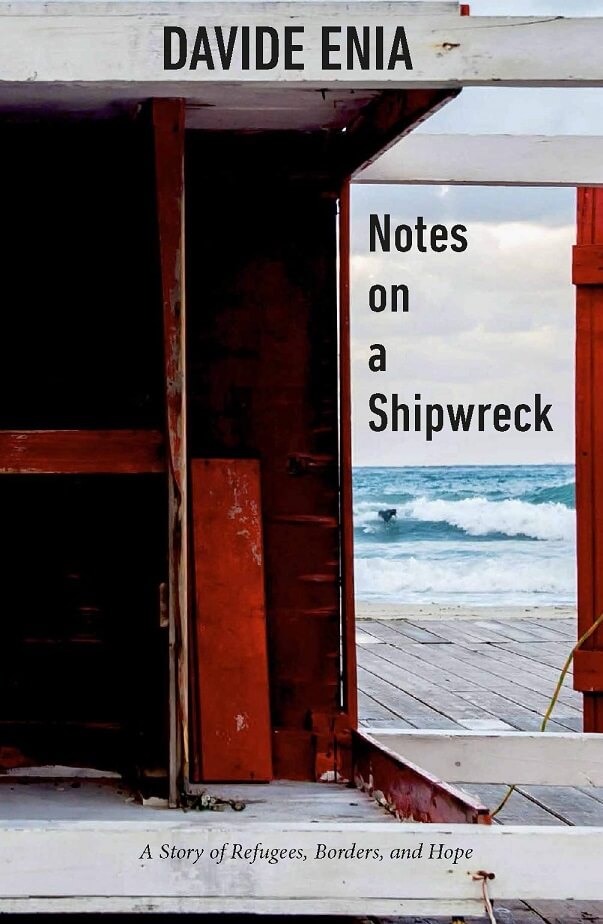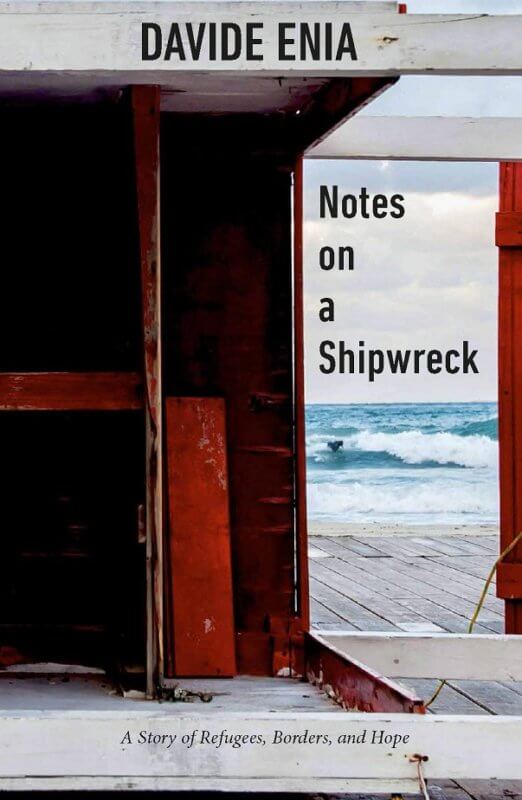08 Mar / Notes on a Shipwreck: A Story of Refugees, Borders, and Hope by Davide Enia, translated by Antony Shugaar [in Christian Science Monitor]

 Whom to save, whom to let perish?
Whom to save, whom to let perish?
The rescuers of refugees washing up on the Italian island of Lampedusa face an impossible choice, as memoirist and playwright Davide Enia describes in Notes on a Shipwreck: A Story of Refugees, Borders, and Hope
“Calculate. It’s all you can do in certain situations. Mathematics. Three is bigger than two.” The unnamed scuba diver speaks of human beings: “Three lives are one more life than two lives.” He’s been called to Lampedusa as a rescue swimmer assisting patrol boat rescue operations. Lampedusa, the southernmost Italian island, is about midway between Sicily and the African coast – and, since the Arab Spring (2010-12), it’s become a washing-up point for refugee vessels crossing the Mediterranean.
The diver is one among many unforgettable voices in Davide Enia’s illuminating Notes on a Shipwreck: A Story of Refugees, Borders, and Hope.
Amid an unprecedented number of refugees – 68.5 million people were displaced worldwide by the end of 2017, according to the United Nations refugee agency – books written about and inspired by their plight are undeniably a growing literary genre. Yet Enia’s “Notes” adds a surprisingly rare perspective – that of the rescuers, who, like the diver, face the impossible decision of whom to pull to safety and whom to abandon – because they cannot save everyone.
Based in Rome, Enia is one of Italy’s prize-winning playwrights, and his prose undoubtedly reflects an ability to interweave multiple individual voices into a resonating, universal story. He’s also a seasoned journalist, which provides him with an unflinching agility in reporting the most heinous experiences with the same affecting detail as he celebrates the smallest joyous moments. Notes was originally published in Italy in 2017, and seasoned translator Antony Shugaar enables English readers to share Enia’s remarkable journey.
Determined to witness the extraordinary Lampedusan drama – a searing contrast from the uneventful destination it was decades ago when he visited as a carefree teenager – Enia returns as a middle-aged man following an especially horrific shipwreck on Oct. 3, 2013, off Lampedusa’s coast: 560 people boarded in Libya, 368 bodies were recovered, 155 survived. The tragedy remains “the watershed event” for bringing the dreadful scene to news feeds around the world: “‘U morto inzìgna a chiàncere.’ The dead man teaches you to cry,’” Enia quotes a Sicilian proverb.
“‘You never forget your first mass landing,’” locals warn him. He shares that life-altering event with his retired cardiologist father, the gravity of which will inspire a long overdue healing between father and son and, beyond the page, between his reticent father and beloved Uncle Beppe. Traveling together – a surprise to them both – Enia and Papà are welcomed by Enia’s friend Paola, a former lawyer-turned-bed-and-breakfast-owner with her partner Melo. In sharing the experience of witnessing their own first mass landing in 2003 or 2004, the couple confesses to their own initial reaction: “‘Let’s lock the doors and windows,’” they said glimpsing the teeming bodies emerging from the water. Their immediate instinct for self-preservation vanished instantly, but its memory brings shame even a decade later. Their actions proved otherwise, as the couple and so many others continued their superhuman efforts to comfort and aid survivors.
Enia has since witnessed 20-plus landings, expanding his heroic cast to include an Italian Coast Guard commander whose team plucked 1,300 bodies from the water in a single morning; a gynecologist trained to bring life into the world but who now mostly ministers to the dead or dying; a local fisherman who’s retrieved slippery, diesel-saturated survivors; a lone mortuary worker who planted an oleander to provide “the privacy she deserved” for the single woman buried among unclaimed dead men.
With every new character onto which Enia shines the spotlight – survivors, rescuers, friends, family, himself – that momentous choice to flee or help in the most difficult situations looms. In dramatizing others’ actions, he seems to be asking readers, “and what would you do?” Inhumanity caused these terrifying situations. Can our humanity save us?
Review: “Whom to save, whom to let perish?,” Christian Science Monitor, March 5, 2019
Readers: Adult
Published: 2019
